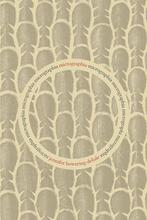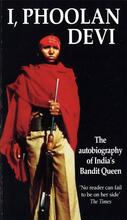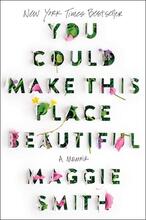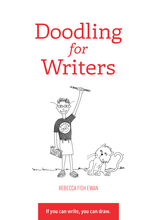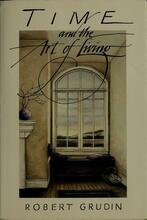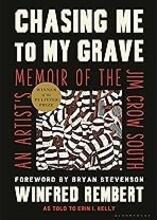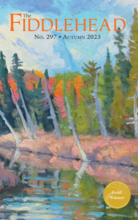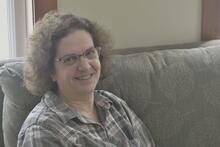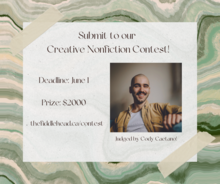Posted on March 19, 2024
I loved Jennifer Bowering Delisle's latest book, Micrographia, in which Delisle juxtaposes her experiences of infertility and motherhood with her own mother's declining health and medically-assisted death. These lyric essays are luminous and questioning, searching for meaning in everyday moments as well as times of intense emotion. Woven with history, etymology, mythology, medicine, and law, the ambitious structure of these essays elevates the artistry and compassion that shine through on every page.
Posted on March 5, 2024
For more than a year now, I have not read a book of my choosing for myself.
Reading remains, in its many facets and prisms of accessibility, a privilege – and the freedom to read what one wishes continues to be a luxury.
Posted on February 6, 2024
I’ve read a lot of great and varied books this year so far, everything from queer romance noir fantasies to nonfiction about moss, but the work that has stuck with me the most is You Could Make This Place Beautiful by Maggie Smith.
Posted on January 23, 2024
The irony behind the “Doodling for Writers” catchphrase, “If you can write, you can draw” is that I was introduced to this book during a workshop I took because I was in a slump and could not write. My need to create pushed me to explore alternate means of expression, which led me to a comics workshop and this book.
Posted on January 11, 2024
Excerpt
"Readiness Quiz: Are You Ready to Start Writing About Past Trauma?" by Shirley Harshenin
PURPOSE
To assess your readiness to write about a traumatic past event. This selfassessment quiz requires you to revisit, in manageable increments, the scene/ event/memory and the associated emotional, psychological and/or physical responses of the past incident you wish to write about.
PREPARATION
Posted on January 9, 2024
In the 25 years since it was given to me as a birthday present, I’ve recommended Time and the Art of Living more often than The Sixteen Pleasures or Mao’s Last Dancer.
Posted on December 12, 2023
I taught a class called Cotton at my New England university. In the course, we discussed the history of the crop, of the land, and the America commercial traditions of management, capital, and mortgaging, all of which came into being with plantation slavery. We wrote formal poems in response to contemporary news stories in which black men and women were being violently erased. At the end of the semester, my students pieced together a quilt.
Posted on October 25, 2023
Excerpt
"Storm Damage" by Anne Marie Todkill
Winner of the 2023 Creative Nonfiction Prize
To dwellers in a wood, almost every species of tree has its voice
as well as its feature.
— Thomas Hardy, Under the Greenwood Tree
Here shall he see / No enemy / But winter and rough weather.
— William Shakespeare, As You Like It
Posted on October 19, 2023
We're excited to announce that Anne Marie Todkill is the winner of our 2023 Creative Nonfiction Contest and $2000 prize! Her essay "Storm Damage" is featured in the upcoming autumn issue of The Fiddlehead (no.297).
Anne Marie Todkill’s story “The Makeweight Piece” won The Fiddlehead’s 2021 fiction contest and appeared in issue no. 291. Her book of poetry, Orion Sweeping (Brick Books), was shortlisted for the 2023 Gerald Lampert Memorial Award. “Storm Damage” is from a collection of essays in progress.
Posted on September 18, 2023
Congratulations to the fifteen finalists!
Pages
